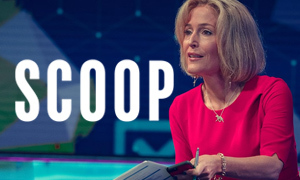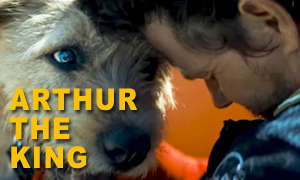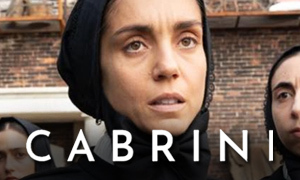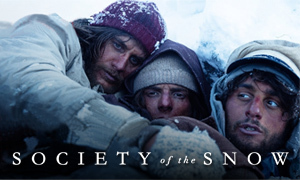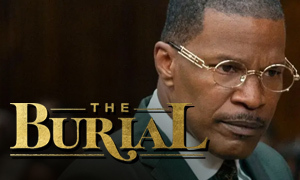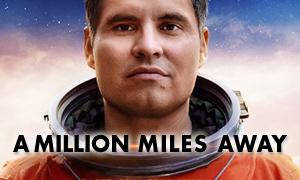How Accurate is "A Beautiful Day in the Neighborhood"? The True Story vs. the Movie
| REEL FACE: | REAL FACE: |
Tom Hanks
Born: July 9, 1956 Birthplace: Concord, California, USA | Fred Rogers
Born: March 20, 1928 Birthplace: Latrobe, Pennsylvania, USA Death: February 27, 2003, Pittsburgh, Pennsylvania, USA (stomach cancer) |
Matthew Rhys
Born: November 8, 1974 Birthplace: Cardiff, Wales, UK | Tom Junod
Born: April 9, 1958 Birthplace: Wantagh, New York, USA |
Maryann Plunkett
Born: October 31, 1952 Birthplace: Lowell, Massachusetts, USA | Joanne Rogers
Born: 1928 Birthplace: Jacksonville, Florida, USA |
Enrico Colantoni
Born: February 14, 1963 Birthplace: Toronto, Ontario, Canada | Bill Isler
|
Is the Tom Hanks Mister Rogers movie a biopic?
The film is not a traditional biopic, nor is it primarily about Fred Rogers, the creator and host of the long-running children's TV show Mister Rogers' Neighborhood (1968 - 2001), which aired nearly 1,000 episodes. Instead, the plot focuses on the real-life friendship between Rogers and cynical journalist Tom Junod (renamed Lloyd Vogel in the movie and portrayed by Matthew Rhys). The hard-hitting journalist reluctantly takes an assignment to write a profile story about the cherished TV icon for a special 1998 "Heroes" issue of Esquire. At first skeptical of Rogers, his perspective begins to change as Rogers helps him explore his own feelings, including his troubled home life and fractured relationship with his father. The real-life piece, titled Can You Say...Hero?, was published in Esquire in November 1998 and is included in the book A Beautiful Day in the Neighborhood: Neighborly Words of Wisdom from Mister Rogers.
Was the hard-hitting journalist Tom Junod really assigned the Fred Rogers story to help clean up his reputation for being too tough on his subjects?
No. The A Beautiful Day in the Neighborhood true story reveals that Junod's typical disruptive articles did stand in stark contrast to the persona of Mister Rogers. However, instead of assigning him the article to help improve his reputation, the editors at Esquire gave him the article because they found the idea amusing. "I was assigned the story about Fred because one of the editors at Esquire thought it would be amusing to have me, with my stated determination to 'say the unsayable,' write about the nicest man in the world," says Junod, who was renamed Lloyd Vogel in the movie.
Did the journalist really get into a fistfight with his father at his sister's wedding?
No. While conducting our A Beautiful Day in the Neighborhood fact check, we discovered this to be false. "I did not get into a fistfight with my father at my sister's wedding," said Tom Junod, the real-life journalist who loosely inspired Matthew Rhys character. "My sister didn't have a wedding."
How closely is Matthew Rhys character, Lloyd Vogel, based on real-life journalist Tom Junod?
Lloyd Vogel (Matthew Rhys) is a heavily fictionalized and re-named version of journalist Tom Junod. The movie introduces us to the journalist in 1998, the year after he won the National Magazine Award. In real life, he won two National Magazine Awards, but earlier, in 1995 and 1996. While Junod says that Fred Rogers did see something in him that he didn't see in himself (namely that he was a good person), he wasn't the cynical journalist consumed by anger who Matthew Rhys portrays onscreen.
The relationships between Lloyd and his wife and Lloyd and his father are also fictional. One similarity is that Tom Junod did dress like his onscreen counterpart, often sporting a black mock turtleneck and an Armani blazer in the late '90s. He also had a childhood toy, Old Rabbit, which is discussed in both the movie and Junod's article. As a result of the movie's misrepresentations, Junod asked the filmmakers to change his own name and the names of his family members, which is how he became Lloyd Vogel in the movie. He also plans to write a book to share his story more accurately. -The Atlantic
Is Chris Cooper's character, Jerry Vogel, based on Tom Junod's real-life father?
In the movie, Lloyd's father, Jerry Vogel (Chris Cooper), is almost entirely fictional. The real journalist, Tom Junod, says that his father, Lou Junod, was in fact an eccentric, boozy philanderer, but he "had never rejected him or his message." Tom idolized his father, despite his shortcomings.
While analyzing A Beautiful Day in the Neighborhood's historical accuracy, we learned that nearly all of the drama surrounding Chris Cooper's character is an invention of the movie. Tom Junod never fainted on set and Fred Rogers never visited Tom's father on his deathbed, holding a pie in his hand. One of the only aspects of Jerry Vogel's storyline in the movie that does have a shred of truth is when Jerry is on his deathbed and Rogers asks him to pray for him. Jerry asks why, and Rogers responds, "Someone who is suffering that much must be very close to God." Though the real Fred Rogers never said that to Tom Junod's father, he did say something similar to a boy with cerebral palsy who he visited in California, later explaining, "I asked him [to pray for me] because I think that anyone who has gone through challenges like that must be very close to God." -Can You Say...Hero? (article)
Did schoolchildren sing to Mister Rogers on the subway?
Yes. While it seems like a nice movie moment that's hard to believe happened in real life, it actually comes straight from Tom Junod's article. Like in the movie, the subway car was crowded with schoolchildren, none of whom approached Mister Rogers. "They just sang," wrote Junod. "They sang, all at once, all together, the song he sings at the start of his program, 'Won't You Be My Neighbor?' and turned the clattering train into a single soft, runaway choir."
Is the journalist's relationship with Fred Rogers portrayed accurately in the movie?
For the most part, yes. Co-screenwriter Micah Fitzerman-Blue said that while the personal struggles the journalist experiences in the movie are fictional, his relationship with Fred Rogers is "very accurate," which appears to be true (minus the moments when Rogers is helping him with his personal conflicts). Tom Junod and Fred Rogers really did become that close. "He trusted me when I thought I was untrustworthy," says Junod, not long before the movie's release. "A long time ago, a man had seen something in me I hadn't seen in myself." -The Atlantic
Did the conversations between Lloyd (Matthew Rhys) and Fred Rogers (Tom Hanks) happen in real life?
For the most part, no. While they did become close friends and have many exchanges – in person, on the phone and via email – the movie's conversations are mostly fictional. For example, at one point Matthew Rhys' character tells Fred Rogers (Tom Hanks), "You love people like me," to which Hanks as Rogers responds, "What are people like you?" Rhys answers, "Broken people." The real-life journalist, Tom Junod, admits that he was broken back then, but he says, "I had never uttered those words to Fred in my life." -The Atlantic
Is the Tom Hanks Mister Rogers movie partly based on the 2018 documentary Won't You Be My Neighbor?
No. The acclaimed Mister Rogers documentary Won't You Be My Neighbor?, which premiered at the 2018 Sundance Film Festival, was not part of the basis for 2019's A Beautiful Day in the Neighborhood starring Tom Hanks. The documentary offers a much more comprehensive look at the life of Fred Rogers.
Is Lloyd's wife based on a real person?
Matthew Rhys' character, the cynical Lloyd Vogel, is only loosely inspired by real-life journalist Tom Junod, hence the name change. A Beautiful Day in the Neighborhood fact check reveals that Lloyd's wife Andrea is mostly fictional as well. She was very loosely inspired by Tom Junod's real-life wife, Janet, who never met Fred Rogers.
Did the real-life journalist and his wife have a newborn son?
No. In the film, Lloyd Vogel (Matthew Rhys) and his patient wife Andrea (Susan Kelechi Watson) have a newborn baby. While researching the A Beautiful Day in the Neighborhood true story, we discovered that the real-life journalist and his wife did not have a newborn child. Tom Junod does credit Fred Rogers with giving his wife Janet and him the courage to adopt their daughter. However, that encouragement came during his last conversation with Fred Rogers (after the events in the movie), at which time he and his wife began the adoption process. -The Atlantic
What is A Beautiful Day in The Neighborhood's biggest omission?
Fred Rogers' faith in God is integral to understanding who he was, yet it's mostly absent from the film. "Fred's faith in God was unshakable," says journalist Tom Junod, "and so was his faith in goodness itself." Junod, who loosely inspired Matthew Rhys character, says that Rogers was more overtly religious in his emails than he was in person or on his TV show, the latter of which almost lacked the mention of God entirely. In real life, Rogers was an ordained Presbyterian minister. -The Atlantic
Did Mister Rogers have a strained relationship with one of his sons?
As the film points out, it's not hard to imagine that having Mister Rogers as your father could be both a blessing and a burden. In the movie, we see Rogers (Tom Hanks) confess that he has a strained relationship with one of his two sons. A fact check reveals this to be accurate.
Did journalist Tom Junod and Fred Rogers remain close friends?
Yes. It was an "enduring" friendship that lasted from the moment they met in 1998 until Rogers death in 2003. Tom Junod indeed found himself opening up to Fred Rogers, asking him his "deepest and most troubling questions." They exchanged no fewer than 70 emails during the first year of their friendship alone. Rogers mostly wrote about faith, closing each email by telling Junod that he kept him in his thoughts and prayers. "And, I guess you know, each morning I pray for you; I really do." -The Atlantic
Is Fred Rogers portrayed accurately in A Beautiful Day in the Neighborhood?
Yes, at least much more accurately than any of the other main characters. In exploring the A Beautiful Day in the Neighborhood fact vs. fiction, we learned that Fred Rogers really was a vegetarian. He had given up meat in 1970 when his father died, and had often stated, as he does in the movie, that he wouldn't "eat anything that had a mother." He even became a co-owner of Vegetarian Times magazine and appeared on the cover. During a 1987 interview with Rick Sebak, Fred said that he gave up fish in the 1980s after hearing someone's reply when he said, "I heard that fish was very good for you." They told him, "Yeah, but it's not good for the fish."
Like Fred's wife Joanne tells Lloyd in the movie, Fred started every morning by swimming and praying for people by name. Tom Hanks' mannerisms seem very accurate as well, including his slow way of speaking and use of silence, considering each word carefully and giving his audience time to ponder them. Anyone who has seen Mister Rogers' Neighborhood will also recognize Hanks' accurate wardrobe, including the blue sports coat and the red cardigan.
In a crowded restaurant, did Fred Rogers ask Lloyd to join him in 10 seconds of silence "to think of the people who have loved us into being"?
Not exactly. He never asked this of the real-life journalist, Tom Junod. Instead, he asked the audience to do this during his 1997 acceptance speech when he received the Emmy Lifetime Achievement Award. As he stood before a crowd of soap opera stars and talk show hosts, he said, "All of us have special ones who have loved us into being. Would you just take, along with me, 10 seconds to think of the people who have helped you become who you are." After they realized he was serious, tears began to fill their eyes. It was during this same speech that he also said that fame is a four-letter word.
Overall, how accurate is A Beautiful Day in the Neighborhood?
It's a question that fans were asking even prior to the movie's release. "How accurate is the Tom Hanks Mister Rogers movie?" Perhaps the film's biggest error is one of omission. In order to evoke who Fred Rogers was, the film focuses on how he helps a cynical, anti-social (largely fictional) journalist to understand his feelings and come to terms with his deep-seated issues. Mister Rogers' Neighborhood did this regularly with children, using puppetry, songs and straightforward talk to help children understand their feelings. While the movie's story offers an example of Fred Rogers' impact on people, we arguably don't get to know him any better than we already did.
By creating a story arc around the movie's largely fictional journalist, Lloyd Vogel, there's no time for an actual story arc about Fred Rogers. For instance, one that delves into his childhood, the creation of Mister Rogers' Neighborhood, how he spent his three-year retirement before deciding to bring back his beloved TV show. And then there's the enormous influence of religion on Fred Rogers' life and career (he was an ordained Presbyterian minister but thought he could better spread a positive message to young people through public television).
Christianity provided the foundation for Fred Rogers' message and it was the bedrock of his life. Yet, it's all but absent from the movie. Instead, the film focuses much of its time on the skeptical Lloyd (Matthew Rhys) trying to figure out if Fred Rogers is the real deal. Is Mr. Rogers like his television persona, or is he an impostor? The problem with this approach is that the answer has already been well established. "It is a truism by now that there was no difference between Fred Rogers and Mister Rogers," says Tom Junod, the real-life journalist who loosely inspired Matthew Rhys character (The Atlantic). Perhaps it's because I grew up in Pittsburgh, where Fred Rogers lived and his show was created, but no one I know has ever questioned his sincerity. Simply watch his 1969 speech before congress asking for funding for public television and it's on its own enough to erase any doubt.
In the end, while Lloyd's fictional storyline is effective and moving, we get a film in which Fred Rogers (Tom Hanks) is onscreen for only about half of the running time. Instead of spending more time exploring his "neighborhood" and what was at the heart of it, the true story of Fred Rogers is left largely untouched and Tom Hanks is underutilized in a role he was born to play.
I heard that Tom Hanks is related to Mister Rogers, is that true?
According to Ancestry.com spokeswoman Keri Madonna, "Fred Rogers and Tom Hanks are sixth cousins sharing the same 5x great-grandfather ... who immigrated from Germany to America in the 18th century." Upon learning the news, Hanks told Access Hollywood, "It all just comes together, you see."
Was Fred Rogers a fan of Tom Hanks?
Yes. "Fred Rogers was a HUGE fan of Tom Hanks," says Fred's widow Joanne. His son John said that his dad had probably seen Forrest Gump 100 times. He also loved the movie BIG.
Fred Rogers Interviews & Related Videos
Dive deeper into the A Beautiful Day in the Neighborhood true story by watching Fred Rogers testify before Congress in the video below, as he attempts to secure $20 million in federal funding for PBS. Then view a trailer for the Fred Rogers documentary Won't You Be My Neighbor?
Link-to-Learn More:
